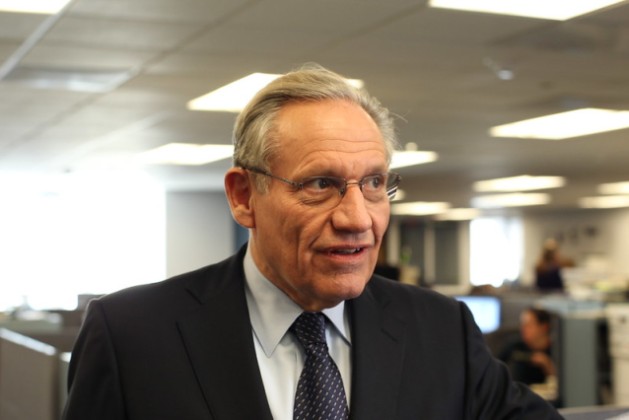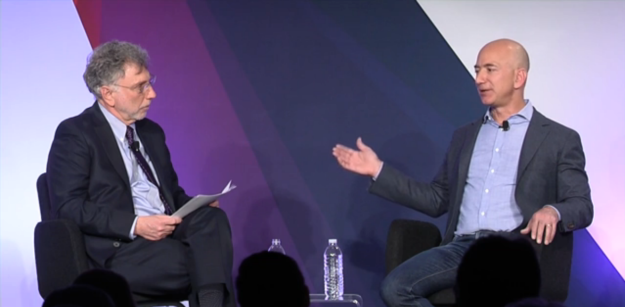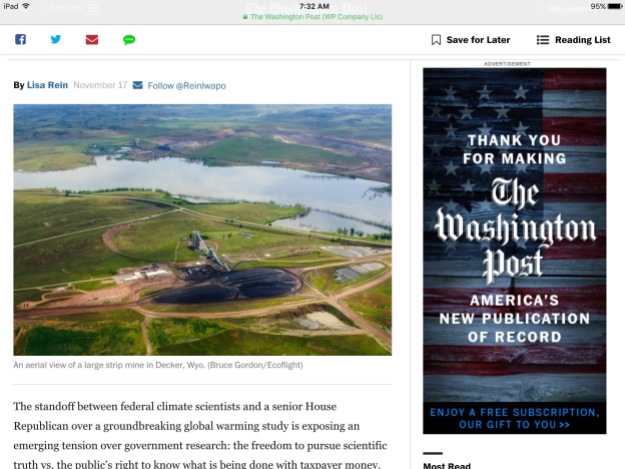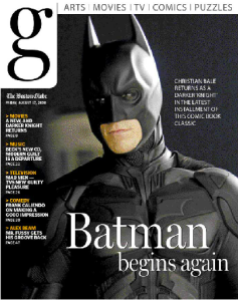 Previously published at WGBHNews.org.
Previously published at WGBHNews.org.
Several months ago I re-read what David Halberstam had to say about The Washington Post in “The Powers That Be,” his monumental 1979 book about the rise of the Post, the Los Angeles Times, Time magazine and CBS News.
As we celebrate the life and career of the Post’s legendary executive editor, Ben Bradlee, who died on Tuesday, it’s worth pondering the economic environment that made Bradlee’s charismatic brand of leadership possible: private ownership.
The Meyer and Graham families had been the sole owners of the Post since the 1930s. But in the early 1970s, publisher Katharine Graham decided to take her newspaper public. Here’s Halberstam:
So Katharine Graham went public. In the end she did it because she felt she had no choice. It was that or sell one of the television stations, which would provide instant cash but would narrow the base of the company. During the months that they prepared the stock issue [Post lawyer and Graham confidant] Fritz Beebe, whose office was in New York, talked frequently with the Post’s New York financial writer, Phil Greer, who was unusually knowledgeable about the workings of the market. Greer was pessimistic about the entire enterprise, and consisted it a drastic mistake. Wall Street, he believed, was a brutal partner, it was not interested in journalism or good writing, and it demanded not just profit but a relentless kind of profit; Wall Street wanted systems, and cost accounting, and a monitoring of expense accounts and higher productivity and lower expenditures. None of these things had anything to do with talent or covering the news. Greer did not believe that the Post could embrace Wall Street without changing. The Post would inevitably become, if not far more conservative on its editorial page, then far more conservative as an institution. When editors thought about covering stories or opening bureaus they would think of the accountants and the costs. What had made certain family-owned papers like The New York Times and the Postspecial in the past was a certain obliviousness to materialism, the power of the editors over the accountants, a willingness to settle for less than maximum profit. Now, however, simply being in the black would not be enough, the margin of profit would have to be larger, 15 percent or more a year to satisfy the stockholders. That was a powerful weapon for the Post’s accountants, for they could go into budget meetings and when editorial expenses were being discussed they could argue, not that the paper was losing money, but that the margin of profit was too low and that the stock might fall. The stock fall? What editor could argue back against that? Was a bureau in Johannesburg worth endangering the stock? The old paternalistic norms, some of them good and some of them bad, would be replaced by new modern computerized ones, some of them good and some of them bad, and all of them cold.
The decision had instant ramifications after the Post joined The New York Times in publishing the Pentagon Papers in 1971. As Halberstam writes, the Post could have been charged with a federal crime, which would have had serious negative consequences for the paper’s upcoming stock offering. Yes, the Post was on the verge of becoming a public company. But because Graham and Bradlee continued to run it as a highly personal institution, they held firm and went to press. Here’s Halberstam again:
Watergate, like Vietnam, had obscured one of the central new facts about the role of national journalism in America, a fact that helped explain the not entirely latent discontent at places like the Post and CBS and The New York Times, rich and powerful and successful as they were. Only very rich, very powerful corporate institutions like these had the impact, the reach, and above all the resources to challenge the President of the United States. Yet the price of that external influence was high to those institutions in an internal sense. The bigger and richer and more powerful the journalistic institution, the more bureaucratic its way of dealing with its own best people, the more distant and aloof its management. The Post was now part of a big rich corporation, 452nd in the Fortune list. Its standards and goals now resembled, not the standards and goals of small old-fashioned newspapers, but those of the other giant corporations on that list. For a highly individualistic profession like journalism there was an inherent contradiction in this. Even those Post reporters who were not entirely enamored of Bradlee, who thought his attention span too short, who objected to the fact that he sometimes preferred sexy stories to what they considered more serious ones, and who thought him too star-oriented, nonetheless welcomed his presence, highly personalized as it was, as a defense against the corporation. They believed that he was buying the newsroom time, that his connect to Mrs. Graham was so close that he could secure freedom of a sort that his successor could not.
In fact, the Post was often characterized as less engaging under Graham’s successor, her son Donald, and the executive editor who followed Bradlee, Len Downie. Whether that’s fair or not, there’s no disputing the reality that public ownership finally met its limits in 2013, when Don Graham sold the Post to Amazon.com founder Jeff Bezos.
Under executive editor Marty Baron, the Post is experiencing a revival, as Baron gets to expand coverage with the money that billionaire Bezos has proved willing to invest in the paper.
The New York Times Co.’s sale of The Boston Globe to financier John Henry in 2013 returned that paper to private ownership as well — and Henry and editor Brian McGrory have expanded the Globe’s coverage of politics and the Catholic Church, among other areas.
Neither Bezos nor Henry has been entirely benevolent. Bezos is trying to cut pension benefits for his employees. Henry has made reductions here and there, and some staff members continue to endure unpaid furloughs first instituted by the Times Co.
Yet there’s no question that both the Post and the Globe are better off in wealthy private hands than they were under the ownership of publicly traded corporations. News organizations are unique. The relentless focus on the bottom line that Wall Street demands inevitably hurts the journalism, which, in turn, harms the bottom line as the audience is driven away. Private owners can focus on the long term in a way that publicly owned corporations simply can’t.
They say it’s better to be lucky than good. Ben Bradlee was both. And we were the beneficiaries.
Photo (cc) by John C. Abell and published under a Creative Commons license. Some rights reserved.








